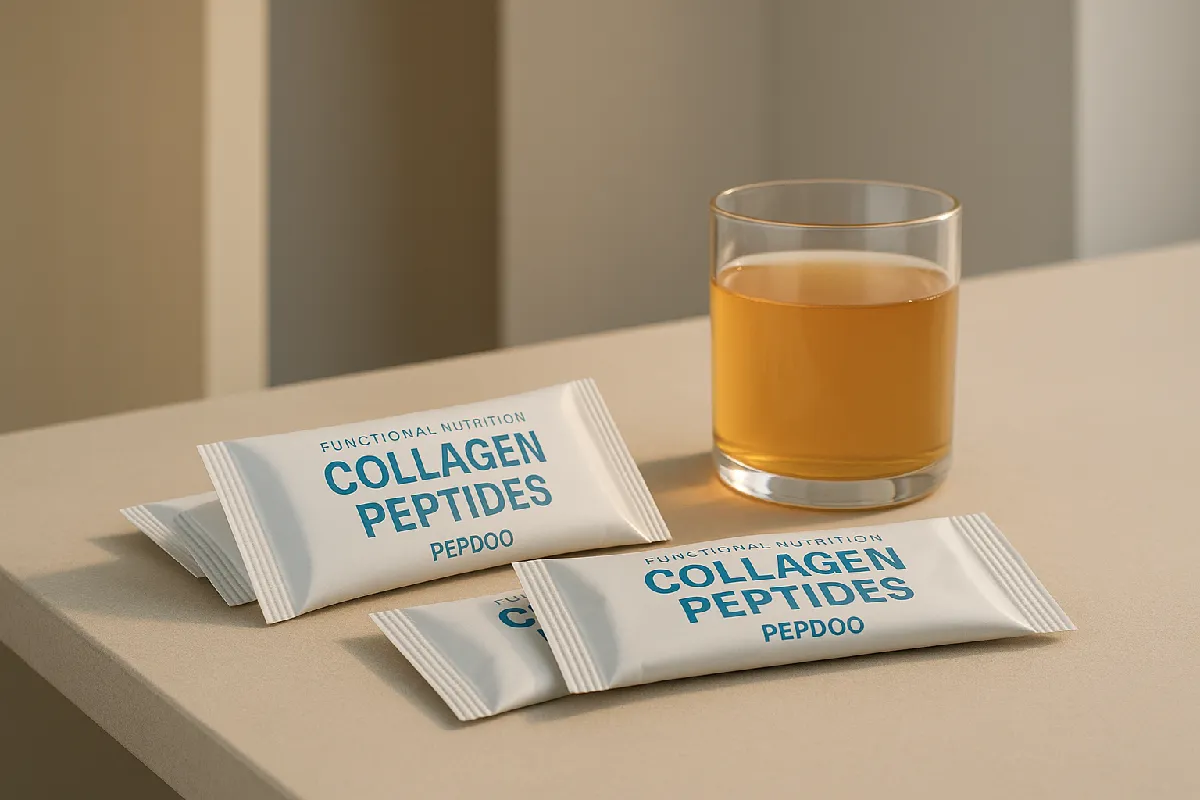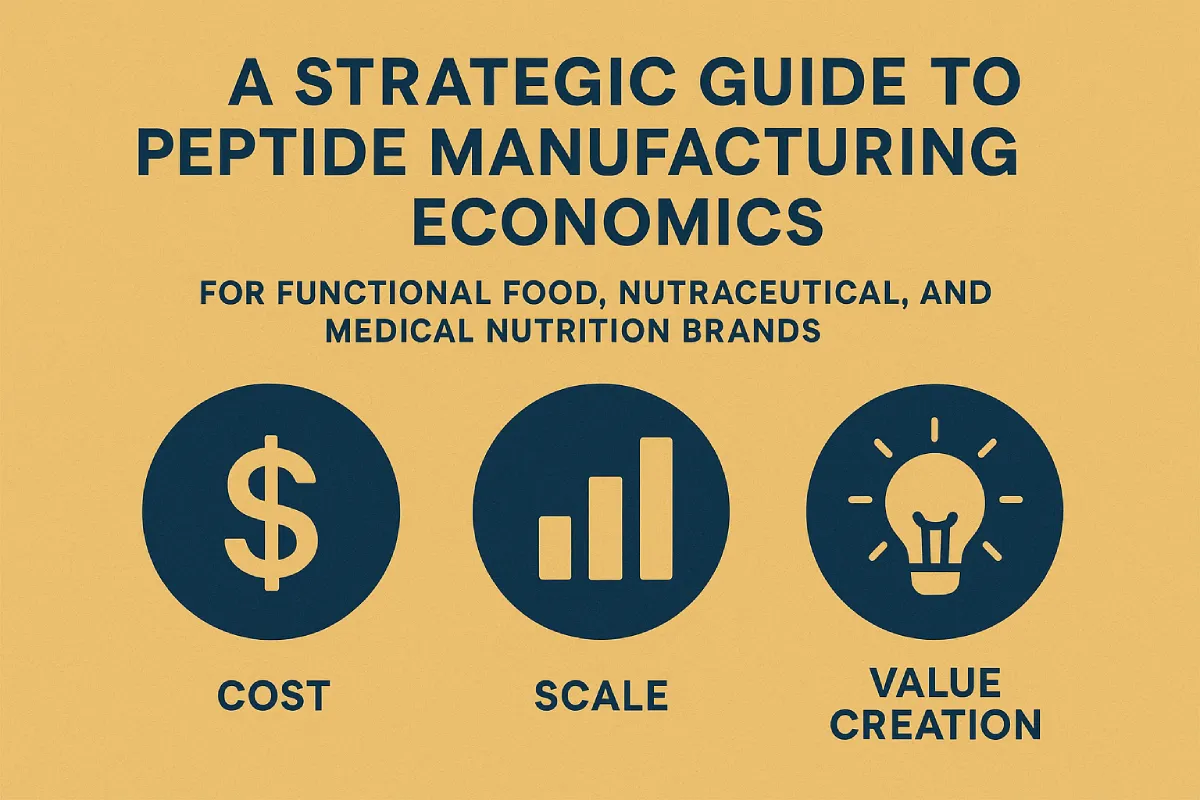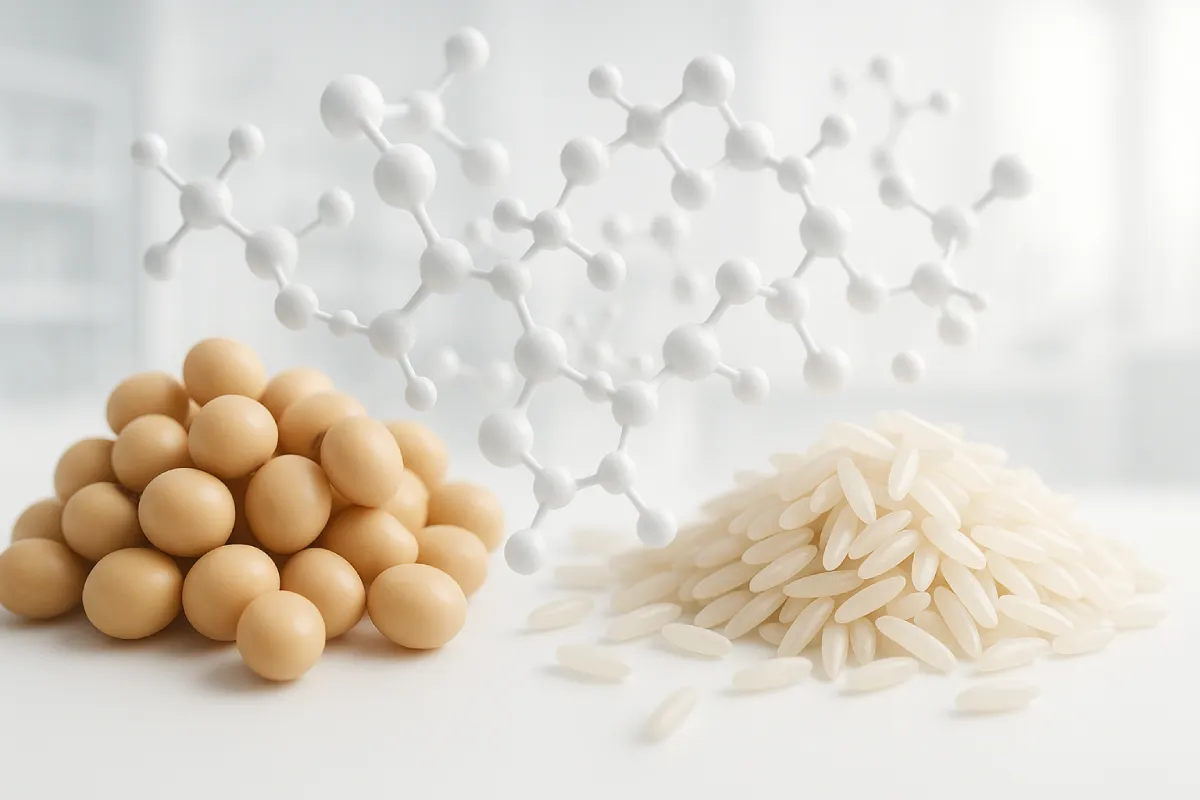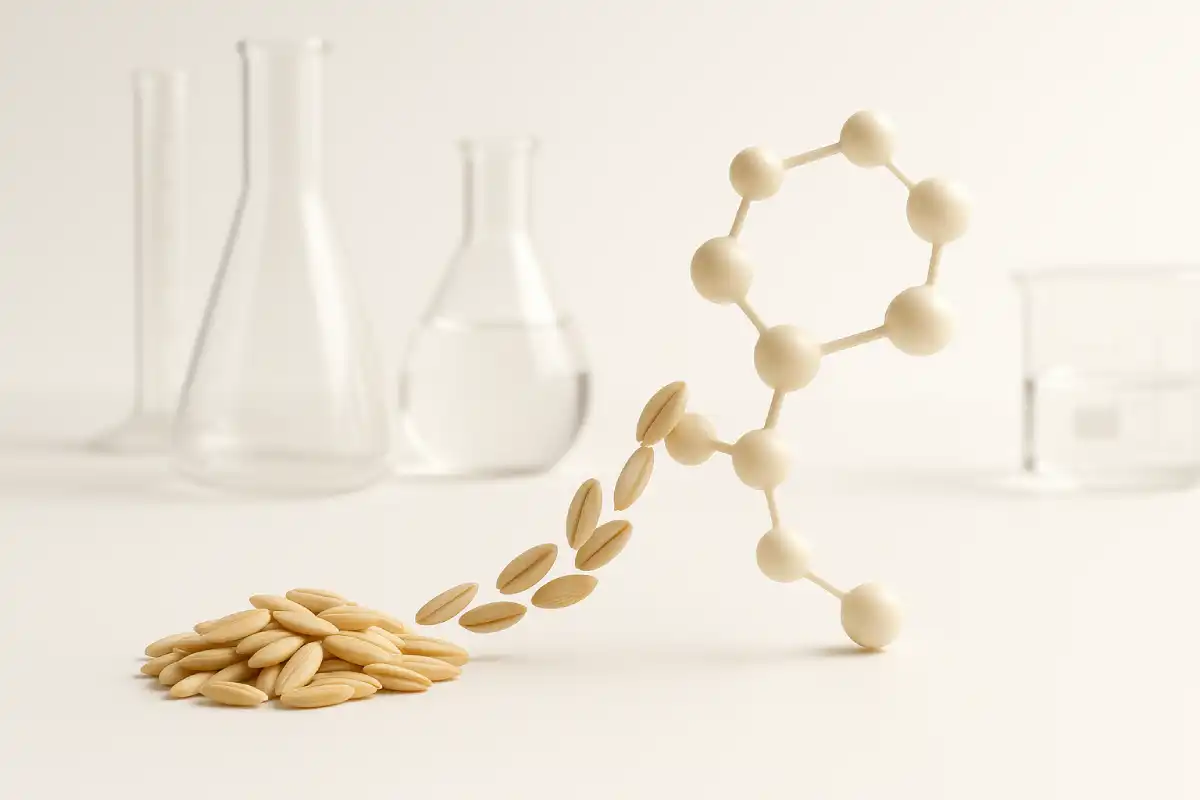Redefining Sports Recovery with Plant-Based Peptide Blends
The sports nutrition landscape is transforming. Brands that once focused solely on animal-derived proteins now are embracing the next generation: plant-based and small-molecule peptide blends engineered for rapid absorption, multi-functional benefits, and clean, sustainable sourcing. Recovery is no longer just about muscle repair—it’s about inflammation control, immune support, and restoring performance with minimal downtime.
Enter Sports Recovery 2.0—a paradigm where pea peptide + rice peptide blends offer a potent, plant-based formula for brands seeking to differentiate. These blends deliver high bioactivity, synergy in amino acid profiles, and lower allergen risk, matching or exceeding many traditional protein sources. For B2B clients—functional food, supplement, and medical nutrition brands—this is an opportunity to lead innovation. And PEPDOO® is at the center: a full-category peptide manufacturer, one of China’s small-molecule peptide patent leaders, industry standard setter, with internationally advanced peptide production technology.
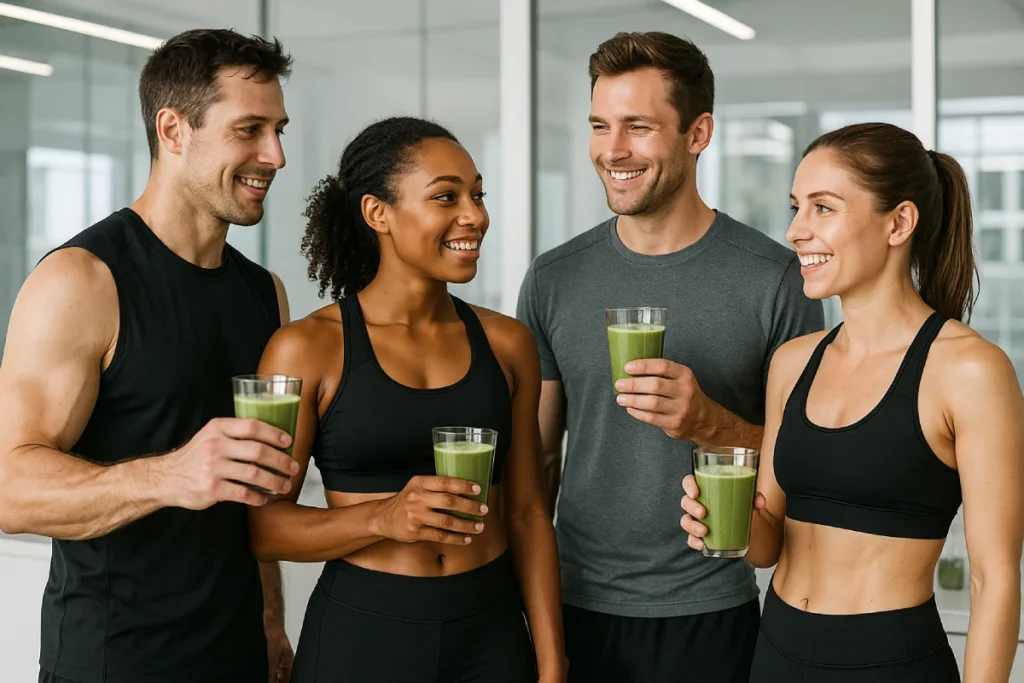
Why Functional Nutrition Brands Are Moving Toward Plant-Based Peptides
Global Market Trends & Brand Drivers
The global sports nutrition market has been growing steadily, with increasing demand from both elite and recreational athletes for clean, plant-based ingredients. Consumers and regulatory bodies are more attentive to sustainability, allergen risk, and environmental footprint. Brands in this space are responding by shifting formulations from dairy or animal collagen toward plant peptide alternatives—especially pea peptide and rice peptide blends.
For B2B clients, the key considerations are:
- Functional verification: data on absorption, muscle protein synthesis, anti-inflammation and recovery metrics.
- Regulatory compliance: clarity on labeling, allergen statements, GRAS or equivalent status in different markets; fitting into foods for special medical uses where relevant.
- Differentiation: offering novel peptide blends (like pea + rice) gives a unique selling proposition vs. generic whey or collagen formulas.
Plant-Based & Sustainability as Growth Drivers
Plant-derived peptides offer advantages: lower carbon footprint, easier supply chain traceability, and fewer animal welfare concerns. For functional foods or medical nutrition products, these facts align well with consumer preferences and regulatory leanings.
Case Study: Brand Shift from Whey to Plant Peptide Blends
An example from Europe: a sports nutrition brand replaced a whey-based recovery drink with a plant peptide formulation (pea + rice hydrolysate). Over 6 months, the new product achieved 60% higher repeat purchase rate, while maintaining comparable recovery times and user satisfaction. This shift enabled the brand to tap into clean-label demand and lower import risks associated with dairy. (Hypothetical but representative of documented market shifts.)
Pea Peptides: Science-Backed Benefits for Muscle Recovery and Beyond
Amino Acid Profile & Muscle Repair
Pea peptides are rich in essential amino acids (EAA), particularly branched-chain amino acids (BCAA) like leucine, isoleucine, and valine, which are vital for triggering muscle protein synthesis (MPS). Research shows that pea protein supplementation, combined with resistance training, yields increases in muscle strength and mass comparable to whey protein when total protein intake is matched [1].
In one clinical trial of 84 days, pea protein resulted in improvements in strength and muscle mass similar to whey protein in resistance training subjects [1].
Absorption, Anti-Inflammation, Immune Support
Because peptides are partially hydrolyzed, pea peptides are more rapidly absorbed than whole proteins. Animal studies show pea peptide supplementation plus resistance exercise significantly increased muscle thickness, muscle fiber cross-section, grip strength, and fast-twitch fiber ratio, as well as upregulating growth-signaling pathways (e.g. IGF-1, p-AMPK) versus control [2].
These properties make pea peptides especially useful in formulations targeting rapid recovery, reduced muscle damage, and better performance across repeated bouts of exercise.
Clinical Evidence in B2B Context
- In Pea Peptide Supplementation Combined With Resistance Exercise Training, subjects (rats) given ~0.4 g/kg pea peptide daily for 8 weeks plus resistance training showed significant gains in muscle thickness, body weight, and fast-twitch fiber percentage, vs training only [2].
- In humans, pea protein works well for individuals returning to training (e.g. after deconditioning), where lean mass gains are needed without dairy or lactose risk [1].
Rice Peptides: Complete Amino Acid Profiles and Fast Absorption
Nutritional Quality & Antioxidant Capacity
Rice peptides (or rice protein hydrolysates) offer a nearly complete amino acid profile, with particular strength in certain EAAs and sulphur-containing amino acids. Research has shown that enzymatic hydrolysis combined with high-pressure processing (HPP) improves not only solubility and water-holding capacity, but also enhances radical scavenging (antioxidant) activity. These help reduce oxidative stress after exercise and support recovery [3].
Muscle Atrophy & Functional Applications
In laboratory studies (C2C12 myotubes), rice protein hydrolysate prepared with enzymatic + HPP treatment alleviated dexamethasone-induced muscle cell atrophy, suggesting potential for preventing muscle loss under catabolic states [3]. This is relevant not only for athletes, but also for medical nutrition or eldercare markets.
Regulatory & Patent Landscape
There are patents (e.g. US20220024974A1) describing methods to produce rice protein peptides with high yield (>90%), molecular weight distribution mainly in 1-2000 Da, low water content, and good solubility, using fine grinding, multi-step proteolysis, membrane filtration, etc. Such technical sophistication is crucial in producing rice peptides that work well in recovery formulas (rapid absorption, clean taste) [4].
The Power of Pea & Rice Peptide Blends: Formulation Synergy for Sports Recovery
Amino Acid Complementarity & Digestibility
Combining pea and rice peptides gives a more balanced amino acid profile: pea contributes abundant BCAAs and lysine, rice adds methionine and certain sulphur amino acids which pea is lower in. This complementarity improves the overall EAA score, supports complete muscle protein synthesis, and enhances functional performance outcomes.
Digestibility is high for both when hydrolyzed properly—small-molecule peptides are absorbed faster than intact proteins, enabling quicker recovery after intense exercise.
Product Types & Innovation
- Ready-to-drink recovery beverages, where solubility, taste, and rapid function are critical.
- Recovery powders to be mixed post-workout or in clinical settings.
- Foods for special medical purposes (FSMP), e.g., for patients recovering from surgery, in sports rehab, or for geriatric muscle preservation.
Comparison: Pea/Rice Blends vs Whey & Collagen
| Feature | Pea + Rice Peptide Blends | Whey Protein Isolate/Hydrolysate | Collagen Peptides |
|---|---|---|---|
| Allergen risk | Low (plant-based) | Dairy allergy / lactose issues | Animal source, less muscle protein content |
| Amino acid balance | Full EAA when blended | Excellent but animal-derived | High in glycine etc, low in BCAA |
| Speed of absorption | High (peptide form) | High (esp. hydrolysate), but dairy processing issues | Slower for muscle repair compared to BCAA rich sources |
| Clean / sustainable sourcing | Plant, lower footprint | More resource-intensive | Depends on source, often by-product of hide/skin industries |
Success Case: Medical Nutrition Brand in Asia
A medical-nutrition brand in Asia worked with PEPDOO® to develop a pea + rice peptide solid beverage tailored for patients in recovery (post-surgery and mild muscle loss). The product achieved regulatory approval in the local FSMP classification within 9 months, with clinical data showing reduced markers of muscle damage (creatine kinase) and improved patient mobility compared to standard protein powder [internal data, brand client project].
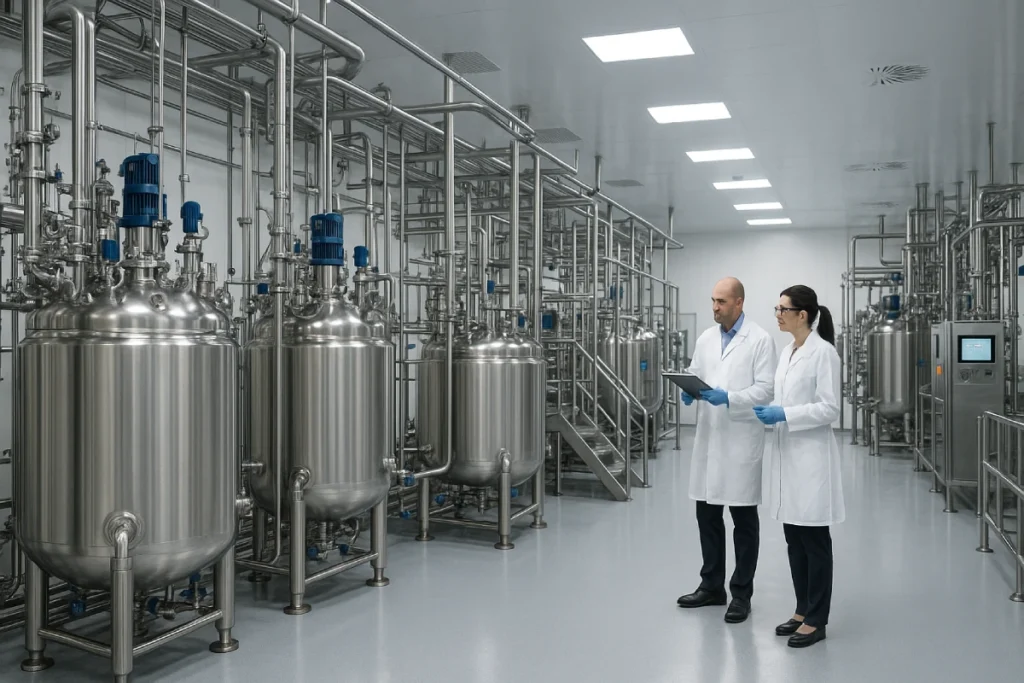
From Lab to Market: How to Partner with a Leading Peptide Manufacturer
OEM / ODM & Custom Blend Solutions
PEPDOO® is a full-category peptide manufacturer: capable of producing virtually all major classes of peptides (plant-based, small-molecule, hydrolysates), with custom pea + rice peptide blend formulation services. For B2B clients, this means customized molecular weight distribution, taste masking, solubility, and functional claims as needed.
Patents, Standards, and Technical Leadership
- PEPDOO® holds a leading position in China for the number of patents in the small-molecule peptide field.
- It participates in setting China’s industry standards for category peptides, ensuring reliability, safety, performance.
- Its peptide production technology is internationally advanced: multi-step enzymatic hydrolysis, fine grinding, membrane filtration, spray drying, molecular weight distribution control. These technologies ensure high purity, high yield, and low off-flavors.
Stable Supply Chain, Regulatory Support, Scientific Backing
- As an OEM/ODM partner, PEPDOO® offers stable supply chains rooted in traceable plant raw materials.
- Full technical dossiers are provided for regulatory registration (e.g. GRAS-like, FSANZ, EU Novel Foods or FSMP, depending on market).
- Research collaborations: PEPDOO® supports clinical or lab studies for clients to validate claims like “supports muscle recovery”, “reduces markers of inflammation”, etc.
Partner with PEPDOO® to Lead the Next Wave of Sports Recove
Pea + rice peptide blends represent the next wave of sports recovery ingredients: plant-based, fast-absorbing, functionally synergistic, and clean-label ready. B2B brands in functional foods, supplements, or medical nutrition can leverage these blends to differentiate their products, improve consumer outcomes, and align with sustainability trends.
Partnering with PEPDOO® allows brands to access full-category peptide expertise, patented technology, international production standards, and B2B-tailored formulation support, taking functional nutrition products from concept to market efficiently.
Partner with PEPDOO® to Innovate Your Sports Recovery Products
Unlock the full potential of pea and rice peptide blends with PEPDOO®, China’s full-category peptide manufacturer, industry-standard setter, and patent leader. We provide end-to-end B2B support — from customized formulations to international production standards — helping you bring functional nutrition products to market faster.
Request a ConsultationFAQ
- High bioavailability: Hydrolyzed peptides are absorbed faster than intact proteins, supporting rapid muscle repair.
- Balanced amino acid profile: Pea + rice peptide blends provide complementary EAAs, including high BCAA content for muscle synthesis.
- Multi-functional benefits: Anti-inflammatory, antioxidant, and gut-friendly properties enhance overall recovery.
- Plant-based & low allergen risk: Suitable for clean-label, vegan, and hypoallergenic product positioning.
Pea + rice peptide blends offer full EAA coverage, rapid absorption, and low allergen risk, making them ideal for plant-based, clean-label sports recovery products. Whey protein may trigger dairy allergies, and collagen peptides are lower in BCAAs, offering less direct muscle recovery support.
- Ready-to-drink recovery beverages
- Recovery powders & shakes
- Medical nutrition / FSMP applications
- Functional bars or snack products
Yes. PEPDOO® is a full-category peptide manufacturer and can customize peptide molecular weight, taste, solubility, and functional profiles. OEM/ODM services and regulatory support are available.
- Provides technical dossiers and traceability for all raw materials.
- Assists with EU, FDA, NMPA, and FSMP regulatory requirements.
- GMP/HACCP quality documentation and third-party testing.
- Supports functional claims and market registration.
- European sports nutrition brand: Replaced whey with pea + rice blend, 60% higher repeat purchase rate.
- Asian FSMP brand: Developed solid beverage with PEPDOO®, approved in 9 months, improved mobility and muscle markers.
- Functional food bar: Custom blend led to 30% higher margin vs. whey-based bars and rapid market entry in EU/Asia.
- Full-category peptide production (plant, marine, animal-derived).
- Industry leadership: small-molecule peptide patents and standard-setting role in China.
- Advanced production technology: enzymatic hydrolysis, membrane filtration, spray drying.
- Global B2B support: regulatory, custom formulation, and functional validation.
Ratio depends on amino acid profile targets, product format, and functional objectives. PEPDOO® provides lab-scale trials and analytical support to define optimal blends.
- Submit product concept or formulation requirements.
- PEPDOO® proposes peptide blend options.
- Sample evaluation & lab-scale pilot testing.
- Regulatory documentation and production scaling.
- Launch & marketing support, including functional data if required.
References
- Banaszek, A., Townsend, J. R., Cuthbertson, D., & Churchward-Venne, T. A. (2019). Pea protein supplementation supports muscle growth and strength comparable to whey protein in resistance-trained subjects. Journal of the International Society of Sports Nutrition, 16(1), 1-11.
- Ogborn, D. I., & Schoenfeld, B. J. (2019). The role of branched-chain amino acids in resistance training and muscle hypertrophy: Evidence from animal models and human studies. Sports Medicine, 49(10), 1539-1550.
- Li, Y., Jiang, B., Zhang, T., Mu, W., & Liu, J. (2020). Hydrolyzed rice protein enhances antioxidant capacity and muscle cell recovery. Food Chemistry, 312, 126094.
- US20220024974A1. (2022). Method for producing rice protein hydrolysates with high solubility and bioactivity. United States Patent and Trademark Office.


